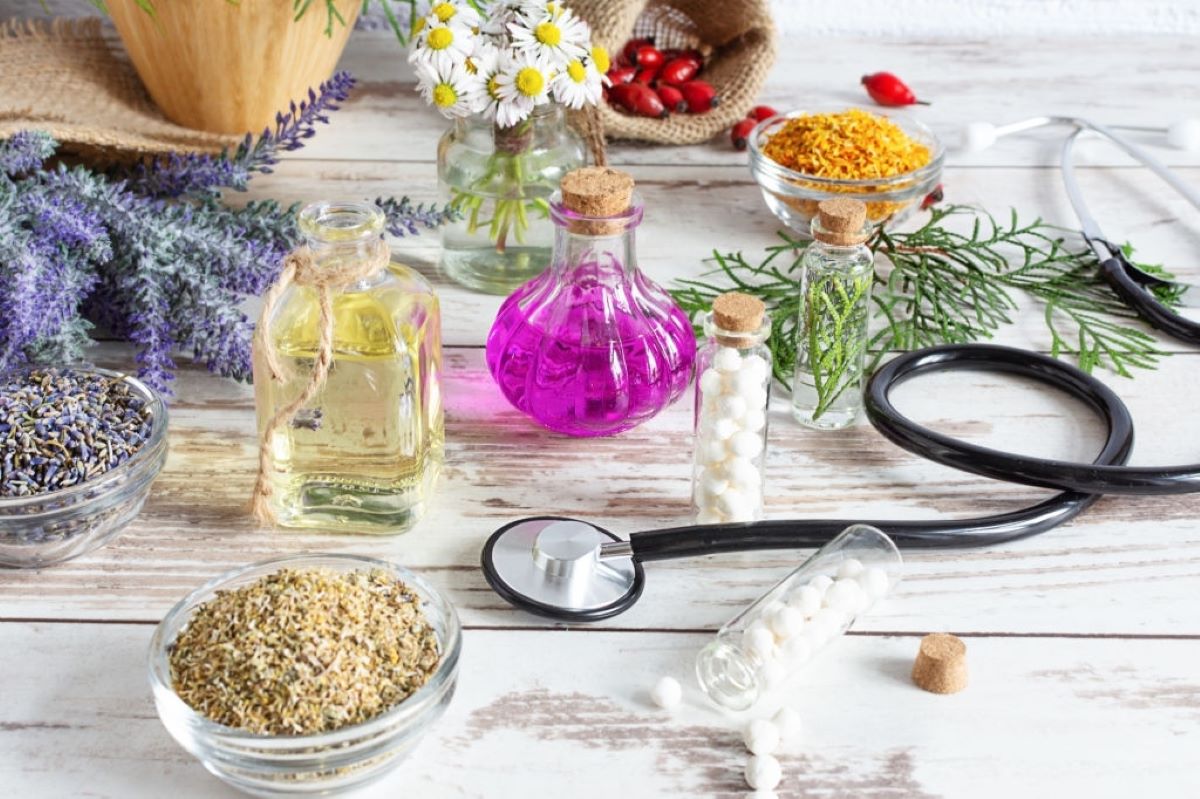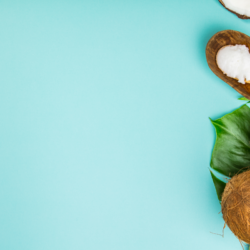Most medicinal plants do not pose a significant health risk; however, there are cases where some herbs can produce unwanted effects. Therefore, their use is limited to certain situations.
To assess the degree of toxicity of a substance, factors specific to the exposed subject such as age, weight, sex, physiological status, etc., as well as environmental factors, should be taken into account.
Colitis and gastritis :
Colitis is inflammation of the colon. Rarely limited to the large intestine, it is usually associated with inflammation of the small intestine (enterocolitis). Colitis can present more serious forms: bacterial, hemorrhagic, ulcerative colitis, etc.
A special form, called i rritable bowel syndrome, is also spasmodic colitis. It is characterized by intermittent chronic symptoms (recurrent abdominal pain, mainly in the left colon, with paroxysmal cramps calmed by the emission of gas or stool), with at the same time; diarrhea or constipation. It is especially stressed and / or anxious people who are affected by this pathology. The treatment is based on good food hygiene.
Gastritis is an acute or chronic inflammation of the lining of the stomach. The causes of gastritis can be very numerous: ingestion of toxic substances, hyperacidity, nervous dyspepsia, ulcers, etc.
In the case of an inflammation of the gastrointestinal or digestive tract, it is better to avoid consuming any medicinal plants with irritant action such as ginger, mustard, pepper, coffee, tea or mate, as well as plants with a purgative action.
Peptic ulcer :
As with other ulcers, it is a wound that is gradually formed, with loss of substance. It generally appears after repeated attacks on the gastric mucosa, in particular by drugs (NSAIDs or non-steroidal anti-inflammatory drugs, corticosteroids, among others). The course is chronic and healing does not occur spontaneously (that is to say without medical, surgical or drug intervention).
In the early 1980s, researchers discovered that a bacterium in the stomach called Helicobacter pylori. This bacterium is responsible for the appearance of certain forms of ulcers that can induce cancer, even several years after recovery. The H. pylori genome is now fully deciphered. A congress bringing together the greatest specialists in gastroenterology takes place every year. The treatment of this bacterial form of ulcer is now based on 3 drugs. One intended to decrease gastric secretion (proton pump inhibitor), the other two being antibiotics. We speak of peptic ulcer when this pathology simultaneously affects the stomach and duodenum, the first part of the small intestine, and duodenal ulcer when it is localized to the same duodenum. Peptic ulcer disease can be called callosum when it is old and its edges are raised and sclerotic.
In the case of this type of pathology, it is better to avoid ingesting medicinal plants that have the effect of increasing the secretion of gastric juices; that is, appetizing and bitter plants such as gentian, mugwort, or irritating plants such as coffee, tea or mate, etc.
Hemorrhoids :
Hemorrhoids are varicose veins in the veins of the anal mucosa and that of the rectum. A distinction is made between internal hemorrhoids, visible by anoscopy, and external hemorrhoids which protrude at the edge of the anus. Depending on their severity, there are several ways to relieve hemorrhoids or even remove them. The first concerns the rules of food hygiene: you must eat a lot of foods containing fiber (vegetables and fruits) and avoid foods such as spices, alcohol, coffee. For internal hemorrhoids, the doctor may use photocoagulation of the hemorrhoidal areas, or liquid nitrogen.
With hemorrhoids, it is best to avoid chemical laxatives containing anthraquinones, as they cause blood to flow to the pelvic area and can make hemorrhoids worse. Also avoid herbal remedies such as senna or buckthorn.
Pyelonephritis or nephritis :
Pyelic is the adjective that relates to the pelvis. A pyelitis is an acute or chronic inflammatory infection of the internal lining of the pelvis. It is a relatively serious pathology, especially since it is often due to the presence of colibacilli and is likely to spread to the whole kidney (it is then a pyelonephritis) or to the bladder ( pyelocystitis). Urologists actually distinguish several forms of pyelitis.
A relatively frequent form: calculous pyelitis or lithiasis pyelitis is due to the presence of a calculus, most often aggressive, in the pelvis. Other forms of pyelitis are named according to the infectious route. This is how we speak of ascending pyelitis or urogenic pyelitis for inflammatory infections migrating from the lower tract, that is to say generally appearing in the urethra or bladder, and hematogenous pyelitis when the infection is transmitted through the blood. In the latter case, it is most often a pyelonephritis.
For renal pathologies such as pyelonephritis or nephritis, it is better to avoid consuming juniper.
Prostatism and prostatitis :
It is the i nflammation of the prostate. Prostatitis can be acute or chronic and results in fever associated with pelvic pain and painful digital rectal examination, painful urination, and cloudy urine. To determine the possible presence of a microbial germ, an ECBU (cytobacteriological examination of the urine) and possibly an antibiogram are carried out.
Perineal trauma (bicycle, horseback riding, etc.) can be the cause of prostatitis: during reflux of urine in the prostate, germs can settle there (Escherichia coli for example) and develop an infection. Treatment is antibiotic therapy for 1 to 4 weeks. Prostatitis can spread to certain neighboring organs: associated with the bladder, it is prostatocystitis or prostatocystitis; when the inflammation spreads to the seminal vesicles, it is prostatovesiculitis (or prostatovesiculitis).
In order to fight against prostatism, it is better to avoid consuming raw onion as well as medicinal plants with diuretic properties such as sabline, field horsetail, dandelion or even corn.
High blood pressure :
Hypertension is the acute or chronic increase in blood pressure in general (or at rest). When we talk about hypertension, it is almost always hypertension or arterial hypertension which is one of the factors that can lead to atherosclerosis. Blood pressure normally rises during physical exertion, stress, the absorption of certain drugs, among others, but doctors agree to speak of arterial hypertension when the values regularly exceed 140 mm of mercury ( or 14 cm) at systole (when the heart contracts) and 8.5 cm of mercury at diastole, during the filling (rest) phase of the heart.
Note also that these values must be corrected for the elderly, in whom blood pressure increases physiologically, as well as for children who have normally lower values.
Today, we are starting to find genetic causes for hypertension. In about 10% of hypertensive people, the cause is known: nephropathy (kidney disease), coarctation or narrowing of the aorta, dysfunction of the adrenal glands, etc. For hypertension of known cause, doctors speak of symptomatic hypertension. In pregnant women, a mild form of high blood pressure is also known, which resolves spontaneously after childbirth. The main signs that should make you look for hypertension are cerebral, cardiac, ocular or renal.
It is therefore necessary to respect certain essential rules: no alcohol or tobacco, reduce obesity by a balanced diet with reduction in fat consumption, elimination of overwork and limitation of stress, reduce salt consumption, exercise regular sporting activity adapted to its age and morphology.
It is also necessary to avoid, for their tendency to increase arterial pressure during arterial hypertension: licorice, mint, tea, coffee, mate, etc.
The pregnancy :
Pregnancy is the period during which a woman carries her embryo (s) in her uterus. In medicine and more particularly in obstetric gynecology, this term designates the duration of pregnancy, between fertilization and childbirth. This duration is approximately 9 months, or 273 days from the date of fertilization. Obstetricians instead count S.A amenorrhea weeks (weeks during which a woman no longer has her period). In this case, the onset of pregnancy is fixed on the first day of the last normal period and its average duration is 41 S.A.
In the event of pregnancy, it is better to avoid plants with emmenagogue or purgative action, such as mugwort, marigold, buckthorn, parsley, licorice, rhubarb, sage, senna, etc.
These herbal remedies produce an influx of blood to the pelvic organs which can cause uterine contractions and thus a risk of miscarriage.
Breastfeeding :
When breastfeeding, it is best to avoid taking any medicinal plants with a purgative, bitter or stimulating action. Their active ingredients passing into breast milk can indeed harm your child..





